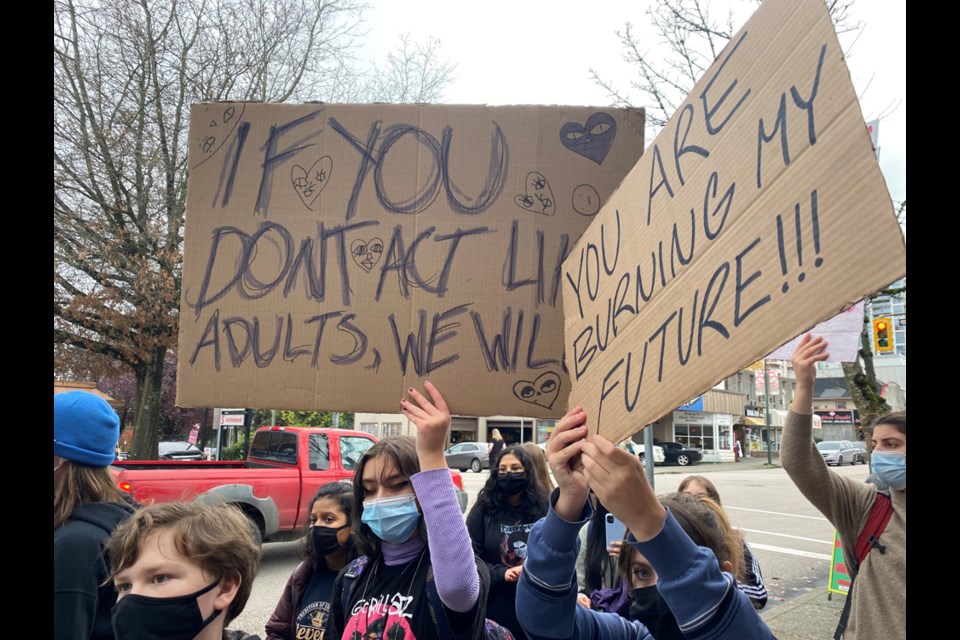“We’ll go back to class when you stop the greenhouse gas.”
“No more coal, no more oil, keep the carbon in the soil.”
The chants carry on the uptown air as a crowd of nearly 100 New Westminster Secondary School students marches their way from the school along Sixth Street to MLA Jennifer Whiteside’s office.
They’re fired up and ready to deliver their message: If adults aren’t going to do something about climate change, then they will.
“In refusing to attend school this afternoon, we are acknowledging the severity of our climate action. With the threat of environmental disaster looming over our heads as we sit in class, we are all becoming painfully aware that our education is not the only thing at stake,” the students wrote in a letter they hand-delivered to the offices of New West’s provincial and federal representatives – Whiteside and MP Peter Julian – on Friday afternoon.
For Veronica Popova, one of the student organizers of the climate strike, the time was ripe for action.
With COP26, the United Nations Climate Change Conference, on in Glasgow at this moment, Popova said it’s time to drive home the message that the unfulfilled promises from the Paris climate agreement of 2015 need to be acted upon – now.
“We thought it would be a great opportunity for activism,” she said. “I feel like it’s really easy to get caught up in the idea that these things don’t make a difference. But I think apathy and inaction are, ultimately, just worse.”
Her colleague, Elena Massing, said she was pushing the message of action to students who were reluctant to join the march because of the academics they might miss.
“Will that biology quiz really matter if all of the things that we’re fighting for don’t change?” she said, noting it’s on her generation to do something. “We have the perspective of youth who are actually going to face the brunt of the consequences.”
The students were buoyed by the turnout at the march – Popova had hoped that perhaps 20 of her peers would be willing to step out – and by the reaction from passersby, as pedestrians and drivers honked, waved and cheered in support.
They didn’t speak to either of the elected officials (they hadn’t made appointments to see them, Popova noted), but they did drop off letters asking for action on the part of the provincial and federal governments. And they held a brief rally outside Whiteside’s office, delivering their message about the need to transition to a green economy, to improve climate literacy in schools, to make public transit free for all and to stop projects such as Fairy Creek logging and the Trans-Mountain pipeline expansion.
Their signs – “Life in plastic isn’t fantastic”; “The sea is rising, and so are we”; “If you don’t act like adults, we will” – earned them thumbs-up from passersby who stopped to see what the ruckus was all about.
And, as most of the students headed back to school for D Block classes, Popova and Massing set out for Julian’s downtown office with a sense of relief that it had all gone well – and an optimism that, in the end, they had made a difference.
Even if it doesn’t lead to immediate, concrete change, Popova said, they spoke out – and people heard.
That, she said, has to matter.
Follow Julie MacLellan on Twitter @juliemaclellan.
Email Julie, [email protected].



